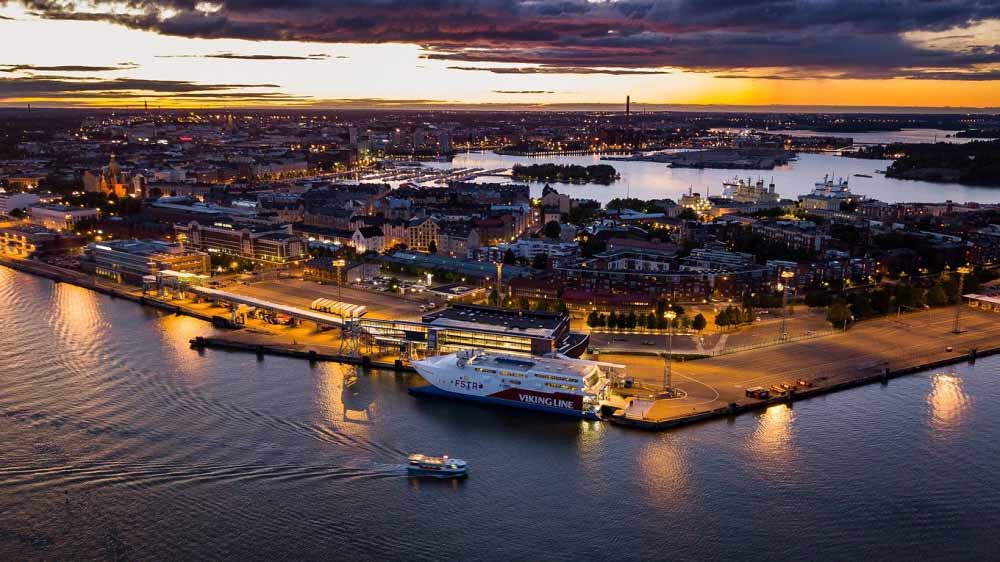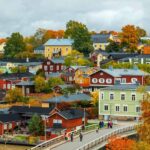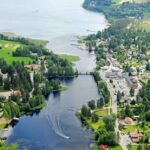Finland is one of the best immigration destinations for individuals looking to spend their future life in a European country. Finnish citizenship allows you to travel visa-free to 189 countries worldwide, live and work in the European Union, and benefit from its high-quality, free education and healthcare systems. Finland’s conditions marked by social stability and an acceptable standard of living, make it an excellent choice for living abroad.
In this country, the government not only takes care of its citizens but also places great importance on the environment and the nation’s natural resources. Finland is popular among foreigners who prefer living close to nature, in a peaceful and clean environment, while benefiting from advanced technology.
Finland’s conditions : Citizenship Benefits
Living in a prosperous society with economic stability, social and legal security, high-quality healthcare and education systems, beautiful nature, a good environment, peace, and the best conditions for raising children are among the conditions in Finland that can guarantee an excellent future for you.
Finland’s conditions: Adequate Rights
One of the most important factors that make the conditions in Finland excellent is respect for the rights of the workers and the members of society. The Finnish government ensures that people have sufficient income to lead their lives. In Finland, the minimum wage is reviewed and increased each year. According to statistics in 2021, the minimum wage was 1,323 euros per month, and the average wage was 3,548 euros per month (before taxes). Trade unions in this country enforce labor laws and support workers’ rights.
Equal educational opportunities for all students
Another condition in Finland for living is establishing equal conditions for the education of all students. Education in Finland is free for citizens and residents of this country. Children, regardless of their parents’ financial situation, have equal rights to access education. Generally, there is no significant gap in the quality of education between schools, and all of them provide a very high-quality education.
High-Quality Universities
Finnish universities are popular globally and many students are interested in studying in their preferred field at Finnish universities. More than 500 programs are taught in English at Finnish universities. Graduates of Finnish universities have a high chance of finding employment and migrating to their desired country. Diplomas from Finland are recognized in over 90 countries.
Low Healthcare and Hospital Costs
The high-quality healthcare system in Finland is supported by the government. The government compensates up to 80% of all medical examination, treatment, and medication costs with the Kela social security card. This indicates that the cost of hospitals and medicines in Finland can be significantly lower than other parts of the world. Poly clinics and hospitals in Finland are equipped with all the modern technologies for diagnosis and rehabilitation, including the use of MRI and thermography for diagnosis. Healthcare professionals work in schools, and dental care for children is free.
Also, the Finnish government has allocated a budget for disease prevention and has considered programs for outdoor sports. Exercise is popular among children and the elderly. According to the Finnish tradition, bad weather is not a reason to postpone exercise.
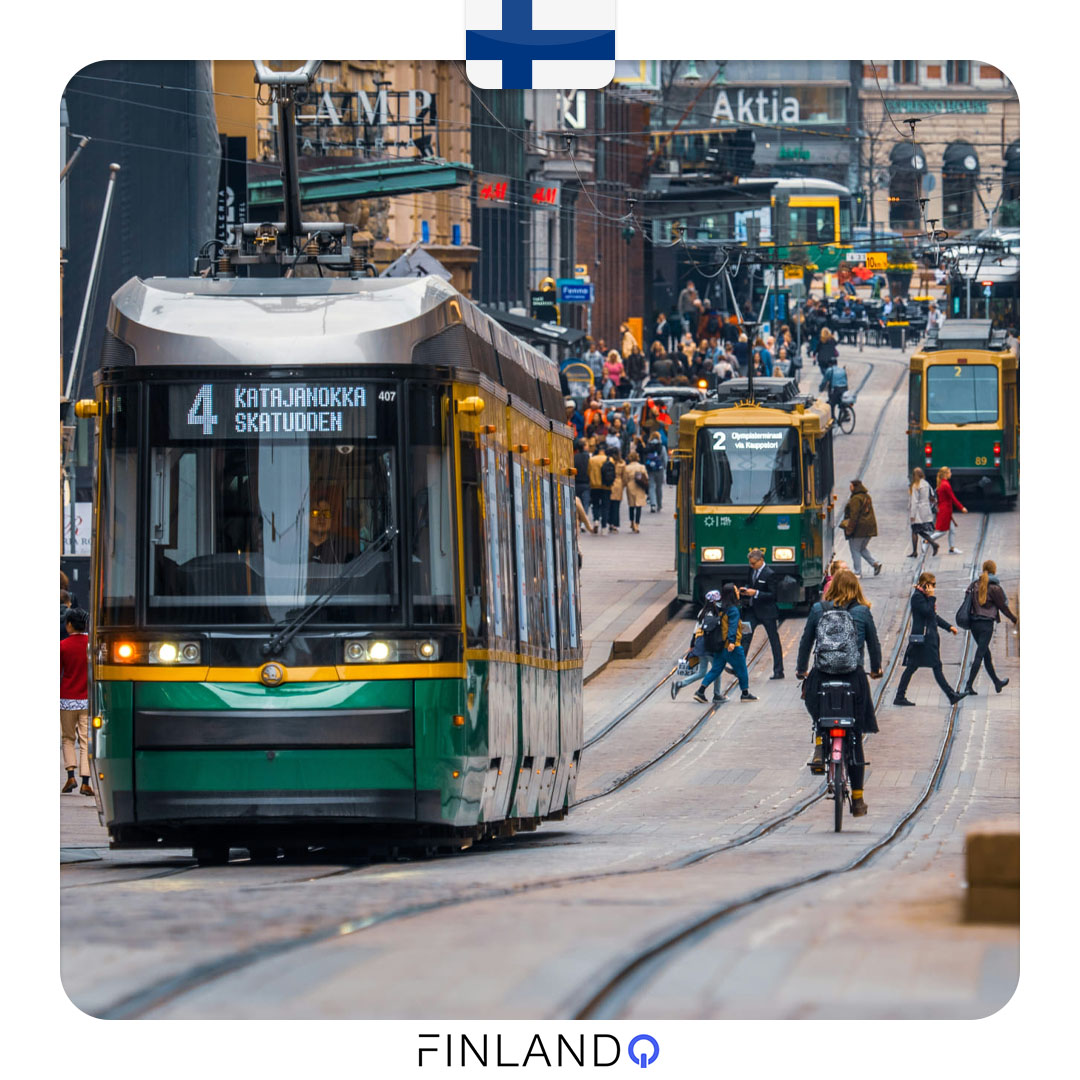
Conditions in Finland: Easy Transportation
Traveling to any European country from Finland is easy by plane, train, ship, car, or bus. For example, a plane ticket from Helsinki to London costs 47 euros, and a flight to Rome costs 52 euros. Inside Finland, the public transportation system provides access to many areas, and you can travel to other cities without paying high taxi fares.
Untouched Nature of Finland
Finland is known for its national parks, spas, and the home of Santa Claus in Lapland. There are also medieval castles and fortresses in Finland that add to its charm. The Finns carefully preserve their national traditions and are famous for their national foods, saunas, and their love for fishing and skiing. It is interesting to note that the local people in Finland call their country “Suomi.”
Finland has over 180,000 lakes, with depths ranging from 20 to 100 meters. These lakes are home to species such as the Arctic char, salmon, and more. Finland’s coniferous forests, with clean air, have helped preserve rare species of animals, birds, mushrooms, and northern berries in the country.
Finland’s Climate
The climate is cold and subarctic. One-third of the country lies north of the Arctic Circle. Summers in Finland are warm, and winters are cold. The temperature in July can reach +25 degrees Celsius, while in January, it can drop to -5 to -20 degrees Celsius. Living in Finland, you will experience snowfall for about 4 to 7 months. Finland’s northern location affects daylight hours: in summer, nights are bright, while in winter, daylight hours average up to four hours. From September to March, you can observe the Northern Lights in the sky.
Protection of Nature
The Finns take great care of the ecosystem around them. Cutting down trees or killing animals is prohibited for any reason. Environmental conservation in Finland begins from childhood, taught in kindergartens and schools, instilling a deep respect for nature from a young age. In Finland, people maintain cleanliness, recycle waste, and use energy-efficient technologies in building houses.
Main Ways to Obtain Finnish Citizenship
Applicants for Finnish citizenship must work or engage in trade in Finland, pay their taxes, own a home or rent one, and have a command of the Finnish, Swedish, or Finnish-Swedish language.
The primary ways to obtain citizenship are as follows:
- Through birth: If a child is born to Finnish citizens.
- Through descent: If the child, parents, or grandparents are Finnish citizens.
- Through citizenship after six years of residence in Finland.
It is important to note that you cannot immediately obtain citizenship through investment, but there are alternative paths to residence in Finland. Investors can apply for citizenship after six years if they meet general requirements for citizenship.
Finland’s conditions : How to Obtain Finnish Citizenship
Finnish citizenship can be acquired through declaration and application. You cannot obtain Finnish citizenship by investing in a Finnish passport. A child born to Finnish parents automatically acquires citizenship. In general, a child automatically acquires Finnish citizenship if:
The child’s mother is a Finnish citizen.
The child’s father is a Finnish citizen and is married to the child’s mother.
A child born abroad and out of wedlock to Finnish parents.
A child between 12 and 17 years of age who is adopted by Finnish citizens.
Conditions for Obtaining Finnish Citizenship for Foreigners
Live in Finland for six years based on a residence permit or permanent residence. To obtain permanent residence in Finland, you must live there for four years on a residence permit and then two years on a permanent residence permit. Applicants can apply for Finnish citizenship after six years of permanent residence in Finland, provided they meet the criteria.
Respect the democratic values of the country.
Have a steady income that is not lower than the subsistence level set in Finland.
Have no unpaid taxes or fines.
Own property or rental housing in Finland.
Know Finnish or Swedish at a B1 level.
Finland recognizes dual citizenship for its citizens. If a Finn holds more than one citizenship, Finnish authorities consider them a Finnish citizen both in Finland and abroad.
Timeframe for Obtaining a Residence Permit in Finland
Citizens of non-European Union countries visiting Finland for over 90 days need to obtain a residence permit. EU, Iceland, Liechtenstein, Norway, and Swiss citizens do not need a residence permit in Finland.
The duration of a residence permit in Finland depends on the application and can range from six months to four years. For example, residence permits for studying can be issued for a period ranging from six months to two years, while work-related residence permits can be for the duration of a valid employment contract but not exceeding four years. Permanent residence in Finland is granted after four years of continuous residence on a Type A residence permit.
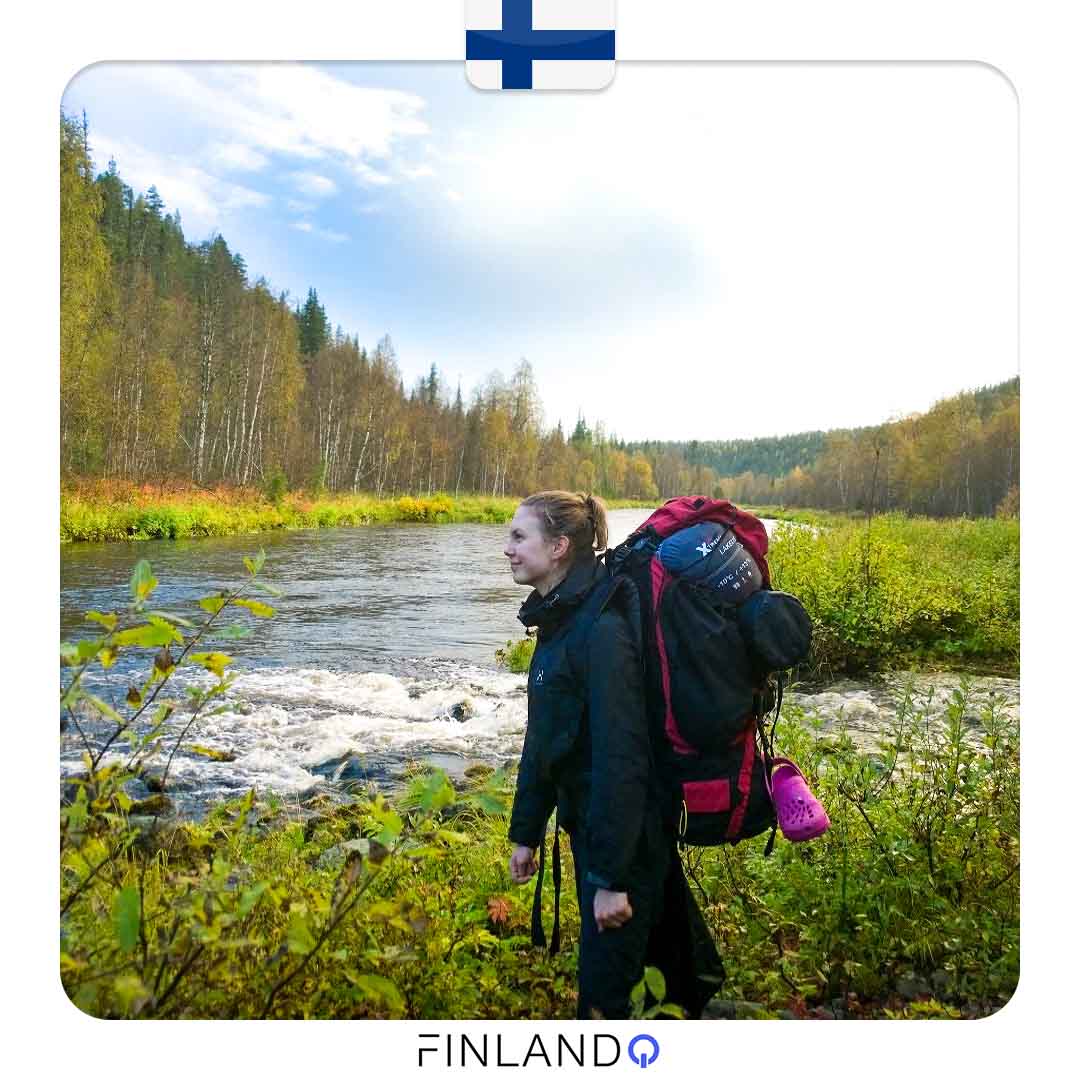
Requirements for Income to Obtain a Residence Permit in Finland
Applicants for a residence permit must demonstrate that they have sufficient funds to live in Finland. The required income varies depending on the type of residence permit and is reviewed annually. For instance, in 2021, the monthly income requirements were as follows:
Based on the minimum cost of living, students applying for a one-year residence permit needed to have €6,720 in their account, and those applying for a two-year permit needed €13,440.
For family members applying for residence permits based on family ties, €1,000 for an adult and €500 for a child under school age was required.
€1,252 was the minimum wage in accordance with the Unemployment Security Act.
€3,000 for employment as a specialist.
€4,929 for obtaining an EU Blue Card.
Final Remarks on Finland’s conditions
Considering the points discussed regarding life in Finland, it can be concluded that the conditions for living in Finland are highly favorable, and you can travel to this beautiful country with your skills or educational background. If you need advice on migrating to Finland, you can contact our experts at FinlandQ for the necessary guidance.

